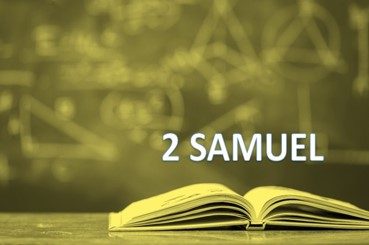
Introduction
‘When Ish-Bosheth son of Saul heard that Abner had died in Hebron, he lost courage, and all Israel became alarmed. Now Saul’s son had two men who were leaders of raiding bands. One was named Baanah and the other Rekab; they were sons of Rimmon the Beerothite from the tribe of Benjamin—Beeroth is considered part of Benjamin, because the people of Beeroth fled to Gittaim and have resided there as foreigners to this day.’ 2 Samuel 4:1-3
Ish-Bosheth Murdered
When Ish-Bosheth got news about the death of Abner, he ‘lost courage’, that’s because he knew his time was up. Because his strength didn’t come from the Lord and the only real strength he had was in Abner, he now knows that his reign as king was coming to an end.
The sons of Rimmon, Baanah and Rekab, weren’t Israelites but possibly Amorites or Canaanites, we know this because Rimmon was from a Gibeonite city, Joshua 9:1-26. The Gibeonites were severely persecuted by Saul who murdered many of them, 2 Samuel 21:1-14. As a result of this persecution, the Gibeonites fled to Gittaim and the town of Beeroth which were considered to be a part of Saul’s tribe, Benjamin.
‘(Jonathan son of Saul had a son who was lame in both feet. He was five years old when the news about Saul and Jonathan came from Jezreel. His nurse picked him up and fled, but as she hurried to leave, he fell and became disabled. His name was Mephibosheth.) Now Rekab and Baanah, the sons of Rimmon the Beerothite, set out for the house of Ish-Bosheth, and they arrived there in the heat of the day while he was taking his noonday rest. They went into the inner part of the house as if to get some wheat, and they stabbed him in the stomach. Then Rekab and his brother Baanah slipped away. They had gone into the house while he was lying on the bed in his bedroom. After they stabbed and killed him, they cut off his head. Taking it with them, they travelled all night by way of the Arabah. They brought the head of Ish-Bosheth to David at Hebron and said to the king, ‘Here is the head of Ish-Bosheth son of Saul, your enemy, who tried to kill you. This day the LORD has avenged my lord the king against Saul and his offspring.’ 2 Samuel 4:4-8
Mephibosheth was Johnathon’s son, the only surviving heir of Saul’s family and here it describes his fate. Verse 4 lays the foundation for what’s coming up in 2 Samuel 9, where David meets him. Notice his nurse picked him up but was in such a hurry that Mephibosheth fell and became disabled, 2 Samuel 9:13.
Notice what Rekab and Baanah did when they got inside Ish-Bosheth’s house, They stabbed him, killed him and then cut off his head. Once more treachery was involved in the death of a king who would reign in Israel. The reason Rekab and Baanah took the head of Ish-Bosheth to David, was because they wanted a reward for killing one of David’s rival kings.
‘David answered Rekab and his brother Baanah, the sons of Rimmon the Beerothite, ‘As surely as the LORD lives, who has delivered me out of every trouble when someone told me, ‘Saul is dead,’ and thought he was bringing good news, I seized him and put him to death in Ziklag. That was the reward I gave him for his news! How much more—when wicked men have killed an innocent man in his own house and on his own bed—should I not now demand his blood from your hand and rid the earth of you!’ So David gave an order to his men, and they killed them. They cut off their hands and feet and hung the bodies by the pool in Hebron. But they took the head of Ish-Bosheth and buried it in Abner’s tomb at Hebron.’ 2 Samuel 4:9-12
David doesn’t mix his words or feelings here, when Rekab and Baanah tell him they have killed, Mephibosheth. He reminds them of what he did to the Amalekite who reported to David that he killed Saul and was looking for a reward, 2 Samuel 1:1-15.
David hates this kind of murderous act, especially when those who do them, seek some kind of political reward for doing so. David demands Mephibosheth’s blood which means he wants to hold the murderers guilty and execute them, Genesis 9:51 / Genesis 42:22 / Psalm 9:12.
We must remember that God commanded murders to be put to death, Genesis 9:6 and we must remember that God hears things we can’t hear, one of those things is unavenged blood, Genesis 4:10.
David wastes no time here in putting Rekab and Baanah to death, he didn’t really have any other choice, because if he allowed them to live, then people may think that he was part of the plan to kill Mephibosheth.
However, by killing them straight away, David sent a clear message out to all of Israel, that no one of honour should be murdered by treacherous men, 2 Samuel 1:14-16. No one can approach him to look for some kind of political reward for doing something so evil.
